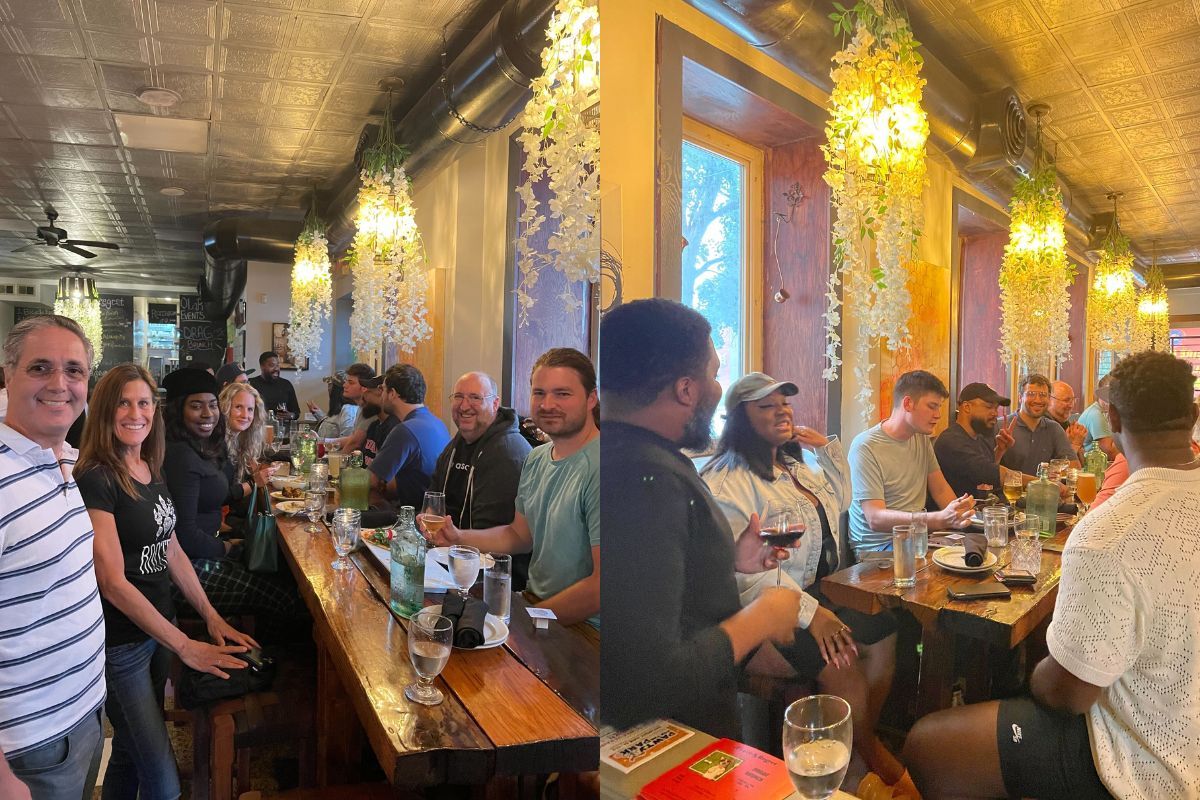Where do technologists go to meet other tech workers across sectors to share best practices?
In every city around the world, there is some meetup, coffee spot, happy hour or something that makes the community feel closer to one another. In Baltimore, we are working towards refreshing where these things happen through sponsorship and co-organizing Baltimore’s Tech Group. This means we want to build a bigger network and facilitate more exchanges that benefit technology practitioners. My name is Gregory Johnson, and I’m a 10+ years data technologist who moved to Baltimore a year ago. Here is why this is important to me.
Finding my place in Baltimore Tech
A year ago, I arrived in Baltimore with a partner who worked as a doctor (the reason we moved up from Miami) and it was hard to get a grasp of the Baltimore tech scene. All cities are different and the culture attracts certain talent. As a tech worker, my experience was joining early-stage companies that went into hyper-growth (0-100s of employees) and then working just at big tech firms launching new programs. Baltimore is not that and probably will never be a place like DC (or other major hubs) where SaaS tech entrepreneurs seek to work to repeatedly build brands to hundreds of millions in revenue. Still, we have plenty of tech workers here! They’re out looking for jobs, working a job, leading a company and studying to find a consistent community to show up in. That’s why we are doing our Baltimore Tech happy hours.
Coming together as a community
There should be places where tech people that work at the cutting edge of technology can share best practices. This should be led by practitioners. Baltimore has a lot of this, but not enough. Leaders, for years, have carried on informal meetups without a central entity just focused on the work and we need to make these more open. This means more open source and open data. We should be early in tools that shape the future of technology from data, analytics and artificial intelligence. One way we are doing this is through our Open Data GPT Meets, and others are doing stuff like Baltimore Hack Nights. I believe building on top of vendor-agnostic frameworks instead of talking about existing apps should be a mindset Baltimore takes to properly support the tech community.
Our Startup Scene
We should also accept the existing culture and recognize it’s what the city is. Baltimore, by proximity to DC, is what Startup Genome ranks as 11th place in the global startup ecosystem. When we look around Baltimore, I found lots of tech workers who work with government agencies, cybersecurity, healthcare and industries not necessarily known for high growth, like software as a service startup. Most live in Maryland but work out of Maryland. This is likely why gaps in funding exist in areas like Baltimore for tech-first or tech-based companies. Instead of focusing on gaps in fundraising, we should laser in on opportunities in solving problems and spaces to highlight people doing that — even individually.
Join us!
Overall, we organizers see #BaltimoreTech as an umbrella that’s loosely organized around decentralized efforts to move the community of technology practitioners forward. There is no one node that runs the community, but collectively we are pushing the status of what being a technologist represents in the biggest city in Maryland. That is why we support meetup organizers, champion the best spaces for inclusive discussions and steward the best opportunities for professional development. These are things we want to do for our community.
If any of these interests make you feel like this is where you belong, we encourage you to reach out if you want to set up your own hosted meetup and broadcast it via the group.
Join the Meetup Group if this catches your interest.







